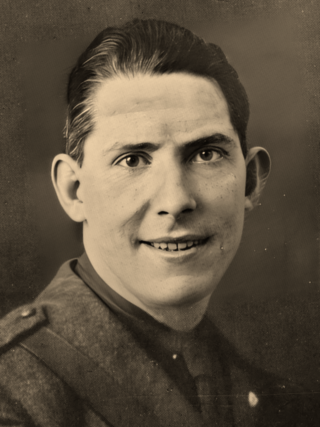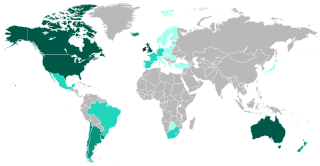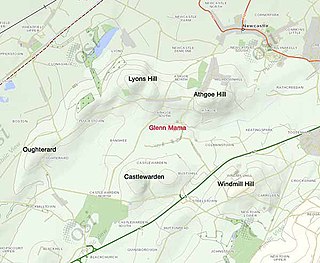Contents
| |||||
| Centuries: | |||||
|---|---|---|---|---|---|
| Decades: | |||||
| See also: | Other events of 1270 List of years in Ireland | ||||
Events from the year 1270 in Ireland.
| |||||
| Centuries: | |||||
|---|---|---|---|---|---|
| Decades: | |||||
| See also: | Other events of 1270 List of years in Ireland | ||||
Events from the year 1270 in Ireland.

Brian Boru was the High King of Ireland from 1002–1014. He ended the domination of the High Kingship of Ireland by the Uí Néill, and is likely responsible for ending Viking invasions of Ireland. Brian Boru is mentioned in the Annals of Inisfallen and in Chronicon Scotorum as "Brian mac Cennétig". The name Brian of Bóruma or Brian Boru was given to him posthumously Brian built on the achievements of his father, Cennétig mac Lorcain, and especially his elder brother, Mathgamain. Brian first made himself king of Munster, then subjugated Leinster, eventually becoming High King of Ireland. He was the founder of the O'Brien dynasty, and is widely regarded as one of the most successful and unifying monarchs in medieval Ireland.

The Battle of Clontarf took place on 23 April 1014 at Clontarf, near Dublin, on the east coast of Ireland. It pitted an army led by Brian Boru, High King of Ireland, against a Norse-Irish alliance comprising the forces of Sigtrygg Silkbeard, King of Dublin; Máel Mórda mac Murchada, King of Leinster; and a Viking army from abroad led by Sigurd of Orkney and Brodir of Mann. It lasted from sunrise to sunset, and ended in a rout of the Viking and Leinster armies.

Seán Mac Eoin was an Irish republican and later Fine Gael politician who was Minister for Defence briefly in 1951 and from 1954 to 1957, and Minister for Justice from 1948 to 1951. He had been Chief of Staff of the Defence Forces from February 1929 to October 1929. He served as a Teachta Dála (TD) from 1921 to 1923 and from 1929 to 1965.

The Irish Volunteers, also known as the Irish Volunteer Force or the Irish Volunteer Army, was a paramilitary organisation established in 1913 by nationalists and republicans in Ireland. It was ostensibly formed in response to the formation of its Irish unionist/loyalist counterpart the Ulster Volunteers in 1912, and its declared primary aim was "to secure and maintain the rights and liberties common to the whole people of Ireland". Its ranks included members of the Conradh na Gaeilge, Ancient Order of Hibernians, Sinn Féin and the Irish Republican Brotherhood. Increasing rapidly to a strength of nearly 200,000 by mid-1914, it split in September of that year over John Redmond's support for the British war effort during World War I, with the smaller group opposed to Redmond's decision retaining the name "Irish Volunteers".

The Irish are an ethnic group and nation native to the island of Ireland, who share a common ancestry, history and culture. There have been humans in Ireland for about 33,000 years, and it has been continually inhabited for more than 10,000 years. For most of Ireland's recorded history, the Irish have been primarily a Gaelic people. From the 9th century, small numbers of Vikings settled in Ireland, becoming the Norse-Gaels. Anglo-Normans also conquered parts of Ireland in the 12th century, while England's 16th/17th century conquest and colonisation of Ireland brought many English and Lowland Scots to parts of the island, especially the north. Today, Ireland is made up of the Republic of Ireland and Northern Ireland. The people of Northern Ireland hold various national identities including Irish, British or some combination thereof.

Ruaidrí mac Tairrdelbach Ua Conchobair was King of Connacht from 1156 to 1186, and High King of Ireland from 1166 to 1198. He was the last High King of Ireland before the Anglo-Norman invasion.
Events from the year 1920 in Ireland.

Between 1639 and 1652, Scotland was involved in the Wars of the Three Kingdoms, a series of conflicts which included the Bishops' Wars, the Irish Rebellion of 1641, the English Civil War, the Irish Confederate Wars and finally the conquest of Ireland and the subjugation of Scotland by the English New Model Army.

The Battle of Glenn Máma or Glenmama took place most probably near Lyons Hill in Ardclough, County Kildare, Ireland, in AD 999 between Windmill Hill and Blackchurch. It was the decisive and only engagement of the brief Leinster revolt of 999–1000 against the King of Munster, Brian Boru. In it, the combined forces of the Kingdoms of Munster and Meath, under King Brian Boru and the High King of Ireland, Máel Sechnaill II, inflicted a crushing defeat on the allied armies of Leinster and Dublin, led by King Máel Mórda of Leinster.

The Anglo-Norman invasion of Ireland took place during the late 12th century, when Anglo-Normans gradually conquered and acquired large swathes of land in Ireland over which the monarchs of England then claimed sovereignty. The Anglo-Normans claimed the invasion was sanctioned by the papal bull Laudabiliter.
Antoine Mac Giolla Bhrighde, English Tony or Anthony MacBride, was a Provisional Irish Republican Army (IRA) volunteer from Desertmartin, County Londonderry, Northern Ireland. He was shot dead by the British Army in 1984 whilst engaged in an attack on the Royal Ulster Constabulary.
MacManus is a family name that may refer to:
Events from the year 1717 in Ireland.
Events from the year 1652 in Ireland.
Events from the 9th century in Ireland.

The surname McDonagh, also spelled MacDonagh is from the Irish language Mac Dhonnchadha, and is now one of the rarer surnames of Ireland.

Seán Mac Stíofáin was an English-born chief of staff of the Provisional IRA, a position he held between 1969 and 1972.

Proinsias Mac Airt was an Irish republican activist and long-serving member of the Irish Republican Army.
Events from the year 1586 in Ireland.